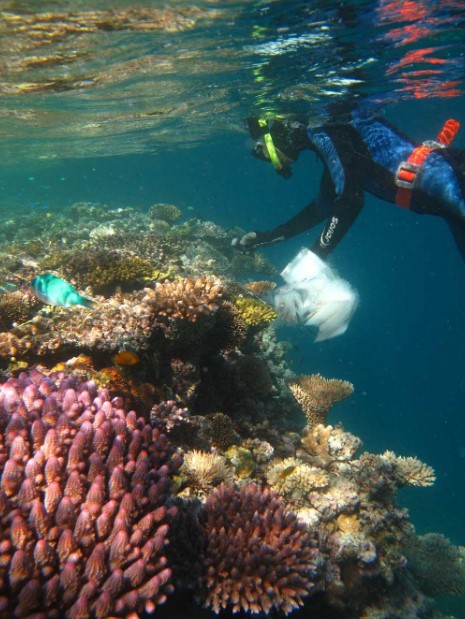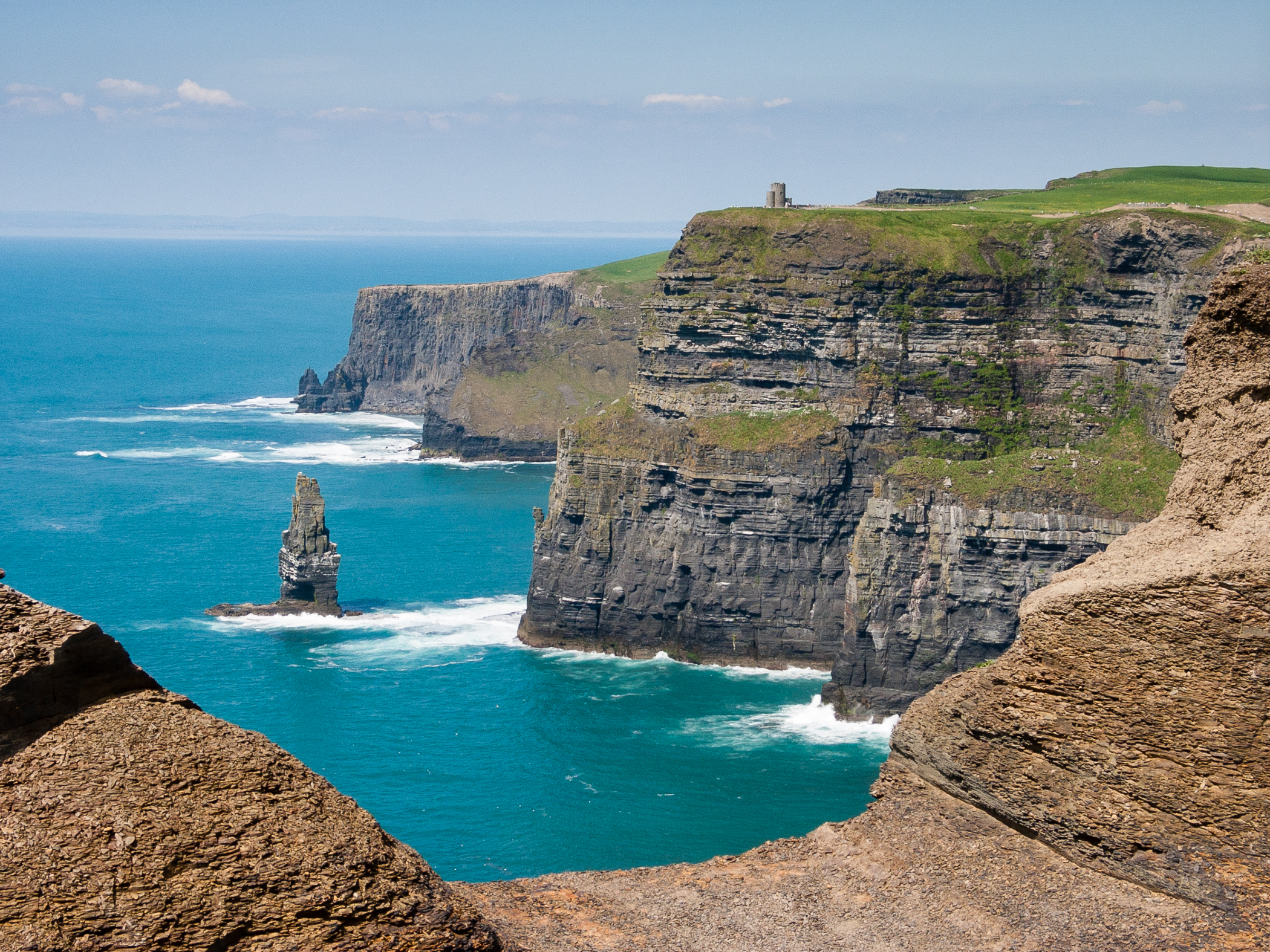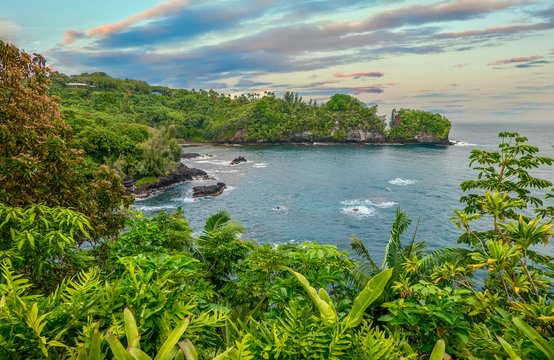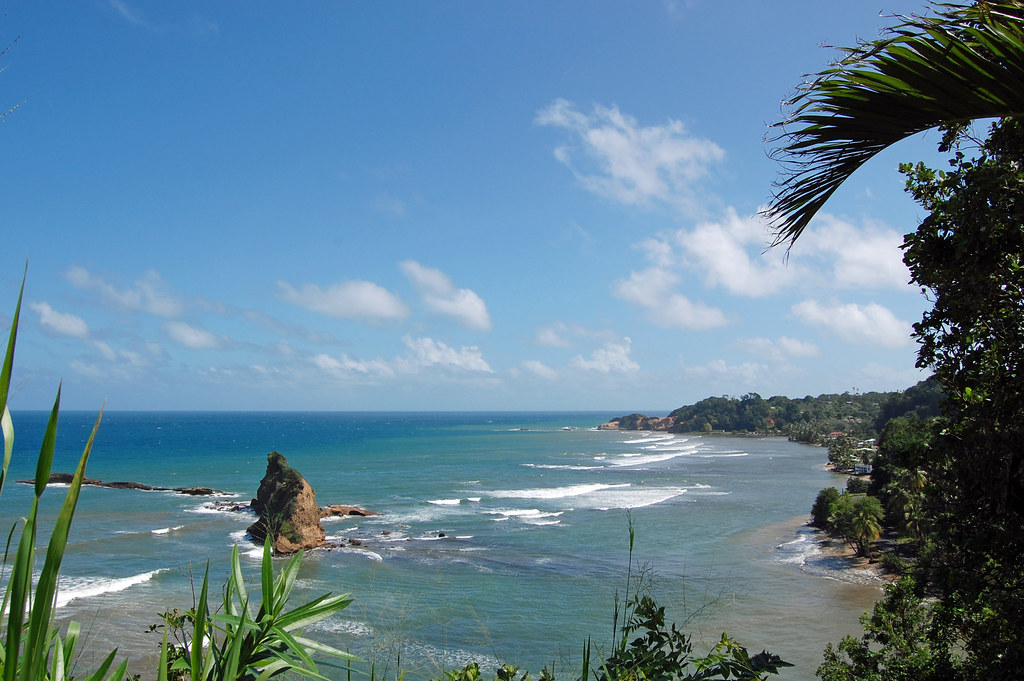
I did a GFS course because I am trying to fit in as many study abroad experiences as possible before I graduate - I want to see the world! By the time I graduate, I will have studied abroad for a semester in London, a semester in Ireland, a GFS in Bali, another GFS in Dominica and hopefully another one offered in Spring 2024!
Alexis Fischer
Global Field Studies Course Listing Notes:
- Application: GFS courses are not open to direct registration. Students must submit an application and meet other eligibility requirements. Most students wishing to apply for GFS courses will have received an email with a personalized application link; if you aren’t able to locate that email or believe that you did not receive it, please contact globalengagement@arcadia.edu.
- Subject to Change: Please note that travel locations, dates, and fees are subject to change. For more information, see the Global Field Study FAQs listed below.
- AUC: Many GFS courses fulfill Arcadia Undergraduate Curriculum requirements. These AUC fulfillments are shown in the descriptions below. Any with an asterisk (*) are anticipated but pending final approval.
Fall 2024 Course Offerings
GFS 306 Marine Biology and Cultural History of Fiji
Instructor: Naomi Phillips & Keliia Jaffe
Meeting Time: Fridays 2:00-4:00pm
Anticipated Travel Dates: 1/1/25 – 1/11/25
Travel Fee Range: $3,900-$4,250
AUC Fulfillment: GCE/GCR, NPL
This course will focus on the marine biology and cultural history of Fijian Islands. It is a 10-day field trip in January to the Fijian island chains. The Fijian archipelago has more than 330 islands with 110 permanently inhabited encompassing a land area of about 18,300 square kilometers (7,100 sq mi). We will be taking daily trips to explore and learn about key marine habitats and cultural sites of the islands. We will learn about both the marine plants and animals of the island, but will focus on the marine plants since these are less well characterized. Evening activities include lectures, night snorkels, and other lab activities.
Prerequisites: An interest in nature, marine biology and/or Pacific culture. Trip includes rigorous daily hikes and snorkeling, thus one needs to be in reasonable physical shape and a capable swimmer. Snorkeling and water safety will be taught in the required pre-trip classes. A swim test will be given later in spring term to determine final eligibility.
Open to sophomores, juniors, and seniors

GFS 381 Great Britain: Lochs, Legends, and Literature
Instructor: Rhianon Visinsky & Allyson McCreery
Meeting Time: Tuesdays 7:00 – 10:00pm
Anticipated Travel Dates: 1/2/25 – 1/12/25
Travel Fee Range: $3,050-$3,350
AUC Fulfillment: CABR, CL, W
This Global Field Study will examine the literary, architectural, and landscape intricacies of England, Scotland, and Wales. Using geocritical theory as a guide, students will explore the ways in which the landscapes of these countries influenced the creation and adaptation of narratives and how those narratives, in turn, influence the ways in which the land is viewed by those “reading” it. We will do this, in part, by reading select stories inspired by the regions that we visit. The tales we explore will range from global fantasy phenomena like the Harry Potter and The Lord of the Rings to local legends like those of the Loch Ness Monster and King Arthur. As part of our geocritical exploration we will explore how power and privilege are at work in the spaces that these stories create and inhabit. Special attention will be paid to how these stories create fandoms that bring people together and deal with issues and ideologies that that segregate and divide. Coursework includes analysis and research of spacial and social landscapes of texts, architecture, and geographic locations; write a research essay and a group project; and create literary maps of the respective landscapes. The field component of this course will explore the storied landscape of Great Britain. These destinations offer unique insight into the ways that landscape and architecture influence the stories and allow us to create, modify, and commodify them for our own purposes of education and enjoyment.
Open to sophomores, juniors, and seniors AND graduate students

Spring 2025 Course Offerings
CSI England and Switzerland
Location: London, England & Lausanne, Switzerland
Instructors: Fabio Oldoni
Meeting Time: Tuesdays from 5:00-6:30pm
Course Code: GFS319A/419A
AUC Designations: GCE/GCR, SS
Travel Dates: 5/17 – 5/28/2025
Travel Fee: $2,975 – $3,275
This course is intended for MSFS students, pre-Forensic Science (3+2 and 4+2) students, Forensic Investigation Minors and is also applicable for Criminal Justice, pre-Law, Anthropology, Sociology, Political Science, and History majors or student with a general interest in CSI. Switzerland and England have played a leading role in the development of forensic science methods and the establishment of forensic science standards since the late 1800s. Forensics has gained prominence due to recent media attention, which can have both beneficial and negative effects.
This course covers the background and development of criminal investigations, as well as notable cases, the foundation of international standards in forensic science, and the roles of forensic scientists and crime scene investigators. We look at how crimes are investigated in the US, Switzerland, and England, as well as the advantages and disadvantages of the respective systems in each nation. We also look at how each country is evolving in this fascinating aspect of the criminal justice system. In order to obtain a more comprehensive picture of forensics’ current function and potential future evolution within criminal justice, we finally take into consideration a variety of related disciplines and topics, including evidence admissibility, the CSI effect, education, and forensic regulation. Students will receive insight into the forensic profession as it exists in the US, Switzerland, and England through site visits and guest speakers over the course, which culminates in field study travel to Lausanne, Switzerland, and London, England.
Open to juniors, seniors, and graduate students

Exploring National Identity in Central Europe
Location: Munich, Germany and Vienna, Austria
Instructors: Christopher Cerski
Meeting Time: Tuesdays and Thursdays from 4:00 – 5:40 pm
Course Code: GFS 321
AUC Designations: GCE/GCR, CL
Travel Dates: 5/17 – 5/31/2025
Travel Fee: $4,100 – $4,375
This course will study how nation-states develop a common national identity and its importance to governmental power. Students will develop an awareness about a nation-state’s use of visual culture to form or project a national identity. This course will study the cultural artifacts that have been used throughout history to form national identity and national narratives, including architecture, monuments, memorials, and art. Students will visit Munich/Nuremberg, Germany and Vienna, Austria, and read an array of sources that examine the importance of capital city architecture, memorialization of key historical monuments, as well as the use of museums to preserve artifacts and art that construct national narratives, identity, and history. Before exploring the international sites, students will examine the United States’ national identity and visit Washington, D.C. to explore how our government uses architecture, monuments, memorials, and art to construct an American identity that shapes the country’s cultural and historical narratives.
Open to sophomores, juniors, and seniors

Global Baroque Art with Travel to Italy
Location: Rome, Italy
Instructors: Jill Pederson
Meeting Time: Wednesdays from 10:00am-12:00pm
Course Code: AH224
AUC Designations: CL, CB, RW
Travel Dates: 5/28 – 6/5/25
Travel Fee: $3,100 – $3,400
This course provides an in-depth exploration of Baroque art in a global context, examining artistic production across different geographies and cultures from the late sixteenth through early eighteenth centuries. Students will be introduced to artistic production across a range of media in important artistic centers, tracing the development of the Baroque from its origins in Rome to its spread across Europe and beyond. Through a comparative approach, we will analyze the distinct stylistic characteristics of Baroque art in various global sites, including Italy, Spain, France, the Netherlands, Latin America, Asia, and Africa.
We will be particularly attentive to themes related to Counter-Reformation ideology and religious upheaval; the patronage of princes, nobility, and the Catholic Church; and the role of artists such as the Carracci,Caravaggio, Bernini, Velázquez, Rubens, and Rembrandt in shaping the Baroque aesthetic. We will also explore the contribution of women artists during this dynamic period in history.
This course will explore the interconnectedness of Baroque art with global trade, travel, and cultural exchange, examining in particular, the adaptation of Baroque forms in colonial contexts. We will investigate Baroque art beyond traditional Eurocentric approaches, inviting students to engage critically with its global significance and enduring influence well into our own time.
This course is designated as an “RW” or Research Writing Course. For this reason, writing is emphasized in the course. The goal of the course is to provide students with a comprehensive knowledge of Baroque art, while helping students develop their writing abilities through collaborative writing exercises. Students learn to write for a variety of audiences and are given feedback on their assignments, which they can then apply to other writing assignments and writing-related activities later in the course.
Open to sophomores, juniors, and seniors

Ireland: Inspired by the View
Location: Ballyvaughan, Ireland
Instructors: Maryann Worrell and Christian Patchell
Meeting Time: Tuesdays from 2:10-3:50pm
Course Code: GFS 317/417
AUC Designations: GCE/GCR, VL
Travel Dates: 5/17 – 6/14/2025
Travel Fee: $4,650 – $4,950
Immerse yourself in the enchanting landscapes of the Burren region of Ireland, where art and sustainability intertwine seamlessly. This transformative journey explores the interconnectedness between artistic expression and environmental stewardship. This course provides students, of any discipline, with the tools to generate creative works, while rediscovering and reflecting upon the natural world, through the medium of their choice (photography, fine art, writing, performance, research, etc.) The rural Irish landscape, in the West of Ireland, will provide ample inspiration through hiking, touring, contemplation, research and discovery.
The experience will be classroom-based at Arcadia during the Spring 2025 semester, as well as include a four-week stay in Ireland, from May 17th-June 14th. This course is for sophomore- graduate students and combines lectures, studio work and field trip excursions. Students and two faculty members will be living and studying in Ballyvaughan, Co. Clare, a rural village in the West of Ireland. Students will be attending The Burren College of Art, which will provide all living arrangements, studio space and limited transportation. Weekly courses at AU will cover a variety of topics including Ireland’s history and culture, artists and writers, various inspiration methods, generating creativity, environmental issues (home and abroad), etc.; applicable to studio and writing course works.
Students will be required to attend all field trips, as well as work in College studios in Ireland daily from 9:30am-5pm, with an hour lunch. Students will share studios, two students per 14’x14’ space and studios are available to students 24/7. Students will present their works or research in a gallery setting, open to the public, at the end of their stay.
Open to sophomores, juniors, seniors, and graduate students

Land, Sea, and Stars of Hawaii
Location: Big Island, Hawaii
Instructors: Tatjana Miletic and Kimberly Small
Meeting Time: Mondays from 3:00 – 4:30pm
Course Code: GFS318/418
AUC Designations: GCE/GCR, NP
Travel Dates: 5/18 – 5/28/25
Travel Fee: $3,175 – $3,475
This is an interdisciplinary, STEM course that studies land, sea and stars of Hawai’i as well as cultural history related to Hawaiian language and science, culminating in a 10 day trip to Big Island of Hawai’i. Students develop awareness of mindful tourism. Places of interest to visit are: Volcano National Park, Mauna Kea Observatory, lava flow sites and marine life along the coast of Big Island of Hawaii. Imiloa means “to seek far” and is a Hawaiian word for both to explore and explorer. We are adopting Imiloa meaning and while studying Hawaiian land, sea and sky we explore and rethink our place in the Universe.
Open to sophomores, juniors, seniors, and graduate students

Castles, Forests, and Fairy Tales: Mapping the German Landscape
Location: Bavaria, Germany
Instructors: Rhianon Visinsky and Allyson McCreery
Meeting Time: Tuesdays from 7:00 – 10:00pm
Course Code: GFS 320/420
AUC Designations: GCE/GCR, IL, CE, NP
Travel Dates: 5/17 – 5/27/2025
Travel Fee: $3,200 – $3,500
This Global Field Study will examine the literary, architectural, and landscape intricacies of Germany and/or the United States. Using geocritical theory as a guide, students will explore the ways in which the German landscape influenced the creation and adaptation of narratives and how those narratives, in turn, influence the ways in which the land is viewed by those “reading” it. We will do this, in part, by reading select fairy tales, myths, and legends from around the globe and comparing those tales to the landscapes of either Germany. We will create our own visual landscapes of the tales using various methods of computer and artistic generation; research the origins of the tales, the landscape and architecture; write a research essay and a group project; and create a map utilizing GIS technology. The field component of this course will explore the storied landscape of Germany. Both destinations offer unique insight into the ways that landscape and architecture influence fairy tales and allow us to create, modify, and commodify them for our own purposes of education and enjoyment.
Open to sophomores, juniors, seniors, and graduate students

GFS308 Dominica
Location: Roseau, Dominica
Instructors: Tom Brinker
Meeting Time: Tuesdays from 2:10-3:50pm
Course Code: GFS308
AUC Designations: GCE/GCR, SS
Travel Dates: 5/17 – 5/24/2025
Travel Fee: $3,175 – $3,475
So why study in Dominica??
The trip to Dominica will take you out of your comfort zone and will strengthen you in more ways than you can imagine. It will open your mind and give you the chance to really see how other cultures live. Less developed regions of the world can be difficult to witness firsthand, but there’s no better way to change your perspective on life than to witness how little people in the rest of the world have and live with on a daily basis. Moreover, you will have an opportunity to visit and interact with factories, power plants, organic farming, community leaders, politicians, entrepreneurs, local citizens and high-ranking civil servants.
Developing countries are in the midst of economic and cultural upheaval; they are always changing and Dominica is no exception, especially after Tropical Storm Erika, Hurricane Maria and the Covid Pandemic. This small island nation is undergoing a massive transformation in the areas of commerce, infrastructure and politics. Studying in an area where poverty is high usually means educational opportunities are low, which also means that there are plenty of opportunities to lend a helping hand. We will be including community service activities throughout our stay.
Open to sophomores, juniors, and seniors

Global Field Study Frequently Asked Questions
What are Global Field Study Courses?
Global Field Studies (GFS) are 4-credit semester-long courses with a global focus and planned travel component. They are open to juniors and seniors, and sometimes sophomores and graduate students. They can meet major requirements and carry AUC designations. Some courses have prerequisites or other eligibility requirements; see course descriptions for details. Graduate students earn 3 grad-level credits for GFS courses.
Who is eligible to participate in the GFS courses?
- Full and part-time matriculated juniors and seniors. Some courses accept sophomores and graduate students.
- Transfer students who have completed at least one semester (a minimum of 12 credits) of coursework at Arcadia.
- See course descriptions for details on prerequisites and additional eligibility requirements.
How do I apply for and enroll in a GFS course?
GFS courses are not open to direct registration and appear closed in Self-Service. This is because students must submit an application and meet other eligibility requirements. Most students wishing to apply for GFS courses will receive an emailed invitation to apply for GFS with a personalized application link. If you did not receive an invitation to apply, please contact globalengagement@arcadia.edu for assistance.
Enrollment in GFS courses is on a first-come, first-served basis, and in addition to the GFS application, all GFS applicants must submit a GFS deposit of $300 to finalize registration in their chosen course. This deposit will apply toward the total travel fee for the course and can be paid in person at the Office of Student Accounts or online through Self-Service.
How are the Field Study topics and location focuses chosen?
Each semester, Global Engagement puts out a call to Arcadia faculty and staff for Global Field Study course proposals. The courses we offer are based on the research interests and expertise of our faculty and staff who lead them. We strive to offer a varied slate of courses, based in different academic disciplines and in different corners of the world, including North America.
What are GFS Travel Fees?
Global Field Study courses carry a travel fee, in addition to your regular tuition. The travel fee range for courses will be listed on the GFS Courses page. Payments can be made online via Self-Service/eBill, or you may pay by cash or check at the Office of Student Accounts. Make checks payable to Arcadia University.
GFS travel fees vary by course and will be finalized early in the semester the course runs. Total fees depend on the location and the length of the field study. The travel fee typically includes:
- Airfare
- Accommodations
- In-country ground transportation
- All tours, lectures, and group activities
Travel fees can be paid in installments through any method you usually use to pay account charges. Other cost details specific to your field study location will be outlined by your faculty leader.
What is the COVID-19 vaccination policy?
Although strongly encouraged, participants on University-Sponsored International Travel for summer 2023 onward will not be required to be vaccinated against COVID, except where required by the local government, partner institution, or activity. Arcadia strongly encourages all participants, in consultation with their physicians, to follow CDC guidance to remain up-to-date with COVID vaccinations, along with other recommended vaccinations. These are important measures to mitigate the risk of severe illness in our travelers as well as mitigate the spread of COVID and other diseases to the communities in which our students study.
Arcadia does require all students to disclose COVID vaccination status. Students that have been vaccinated will be asked to provide additional information for use as necessary in mitigation efforts.
Can I drop a GFS course?
The drop period for GFS courses ends one day (24 hours) after your first class meeting. At that time, you will be responsible for the entire amount of the travel fee for your GFS course, even if you later withdraw. In most cases, students who drop a course before it begins will not be refunded their GFS deposit because the university will have incurred costs on the students' behalf.
Please see this excerpt from the Global Field Study Enrollment Agreement pertaining to the drop policy for GFS courses:
I understand that the drop period for GFS courses ends one day (24 hours) after my first class meeting. After the 24-hour drop period, the travel fee for the GFS course will be placed on my student account and must be paid in full 2 weeks before the end of the semester in which the course travels. The travel fee will remain my responsibility to pay even if I withdraw from the GFS course at any point during the semester after the initial 24-hour drop period. Withdrawals or dismissals from the program for academic or disciplinary reasons are subject to additional fees for non-recoverable expenses.
What if it's not possible to travel to the planned field study location?
Sometimes, Arcadia needs to change travel plans in order to keep everyone as safe as possible. Please read this excerpt from the Global Field Study Enrollment Agreement with more information:
Arcadia University reserves the right to cancel, alter, suspend, or amend any part of any program or to increase fees should circumstances make these actions advisable or necessary. I understand that the program calendar dates posted on the Arcadia University website are tentative in nature, and can change at any time. Arcadia University will alert me of any such changes and will work to minimize any disruption to my planning.
Cancellations / Refunds
In the case of the total cancellation of your course, students will be refunded any monies paid toward the course. If a course continues but the field study portion is altered, students may be responsible to pay alternate programming costs necessary to meet the academic goals of the course, such as local excursions and guest speakers, etc. Students will be informed in a timely manner about these fees.
How do I pay for GFS?
Students can pay online through Self-Service or in person at the Office of Student Accounts, 777 Building.
When paying in person, please request and keep a receipt for your payment. Please send Cheryl Lewis lewisc01@arcadia.edu an email to let her know that you have submitted your payment in person. If you have an account balance of at least the amount you need to pay, you can request that transfer by emailing the Office of Student Accounts and cc me: busoffice@arcadia.edu
Online payment process:
-
Log in to Self-Service
-
Click “Finances” tab
-
Click “View e-bill and pay”
-
Select “Make a payment” from the left side menu
-
Choose the correct payment from the “Available Items” section
-
Continue through checkout process using credit card (fee applies) or electronic check (no fee)
-
Keep the payment confirmation email you’ll receive once payment is submitted
Passports
Do I need a passport or visa for a GFS course?
Passports are required for all international travel, and you will need to submit a copy to Global Engagement. We strongly recommend that students request expedited passport processing (additional fee applies) for new passport applications and renewals because regular processing time is approximately 3 months. If you currently have a passport, be sure the expiration date is at least 6 months after your return date.
Passport Application and Documentation
Passport application available through the U.S. State Department website.
Please see this excerpt from the Global Field Study Enrollment Agreement on travel documentation, including valid US passports:
Proper Travel Documentation:
I understand that it is my responsibility to have all travel documents necessary for domestic and/or international program travel. For international travel, this includes a valid passport for the duration of my time abroad and for any required amount of time after I return as stipulated by the immigration policy of my host country. I agree to obtain any and all visa and clearances prior to my time abroad and ensure I have obtained the proper authorization to study in my host country. I understand that Arcadia University is not responsible for any decisions made by foreign embassies or consulates regarding approval of visa documentation and/or immigration clearance. I understand that the failure to obtain appropriate travel documents may result in my removal from the program and that I will be responsible for the travel fee and any additional non-recoverable costs incurred by Arcadia University on my behalf.
Passport Processing
Need a passport? All international travel will require one, and processing time is around 12 weeks, so apply now! Visit travel.state.gov for application information. Email globalengagement@arcadia.edu with questions.




